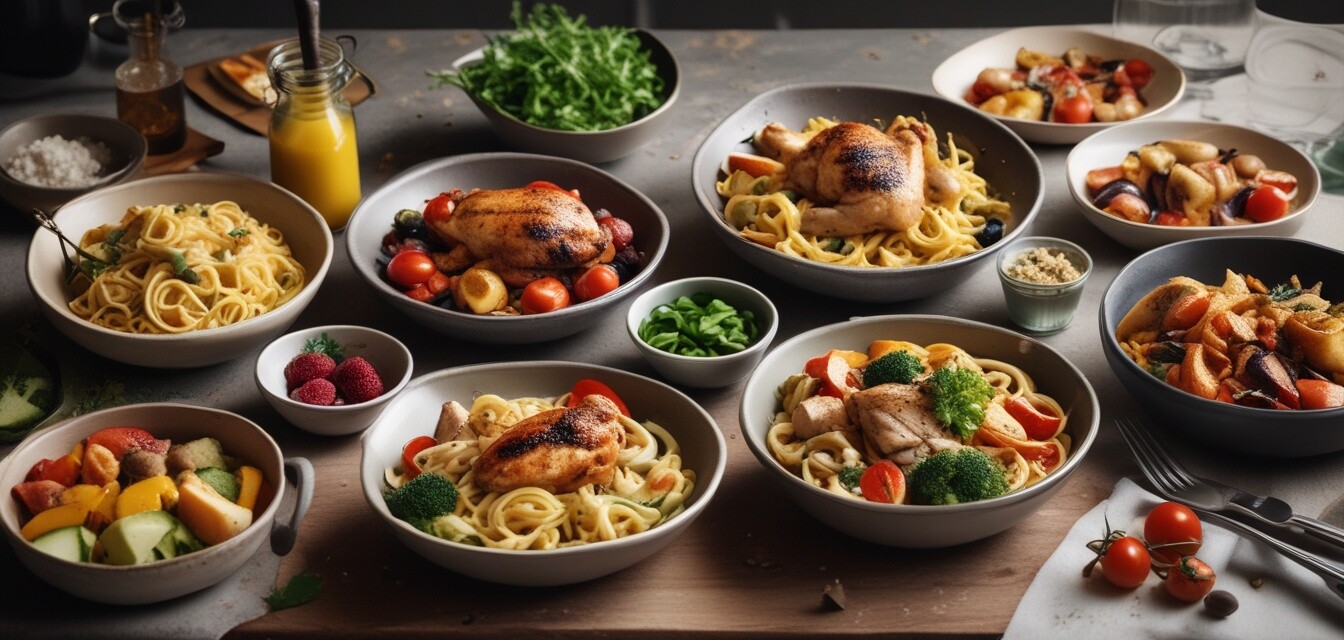
Ways to more intentionally use leftovers
Key Takeaways
- Leftovers can be transformed creatively into new meals.
- Understanding storage techniques can prolong food freshness.
- Incorporating leftovers saves time, money, and reduces waste.
- Simple recipes can easily repurpose various leftover ingredients.
- Planning meals around potential leftovers enhances kitchen efficiency.
Cooking can often result in extra food that can go to waste if not used properly. By creatively reusing leftovers, you can minimize waste and save money, all while creating delicious new meals. This article provides innovative ideas and practical tips about how to intentionally use leftovers in your kitchen.
Understanding the benefits of intentional leftover usage
Before diving into creative ways to repurpose your leftovers, it’s important to understand why this practice is beneficial:
- Minimizes food waste, contributing to environmental sustainability.
- Provides opportunity for new culinary creations, enhancing your cooking skills.
- Saves money by making the most out of what you already have.
- Reduces the time spent on meal preparation during busy days.
Creative ways to use leftovers
Here are some delicious and creative methods to intentionally use your leftover food:
1. Incorporate into new dishes
Integrate your leftovers into completely new dishes:
- Soups and stews: Add leftover proteins, vegetables, and grains to create hearty soups.
- Pasta bakes: Mix leftover pasta with sauce, cheese, and any veggies for a flavorful bake.
- Frittatas: Combine leftover meats and veggies with eggs for a delicious breakfast option.
2. Meal prep with leftovers
Turn your leftovers into meal prep essentials for the week:
- Portion out leftover proteins and grains for easy lunch sandwiches or salads.
- Create jars with layers of leftover ingredients for grab-and-go lunches.
- Pack individual serving sizes of soups or casseroles for a quick dinner choice.
3. Use for flavor base
Reuse scraps and partially used ingredients:
- Vegetable scraps: Collect scraps to make homemade vegetable broth.
- Herbs: Use wilting herbs to infuse oils or make pesto.
- Citrus peels: Zest and dry them for flavoring baked goods or teas.
4. Bake with leftovers
There are delightful ways to enhance baked goods using leftovers:
- Fruit scraps: Mash overripe fruits for moist muffins or quick breads.
- Cheese ends: Grate leftover cheese over baked casseroles for a flavorful topping.
- Cake and cookie crumbs: Use to create pie crusts or as a delicious topping for desserts.
5. Refresh and repurpose
Make meals feel fresh again by rebranding the leftovers:
- Stir-fry: Quickly sauté leftover rice or veggies with new sauces and proteins for a vibrant stir-fry.
- Tacos: Transform any leftover meat or beans into flavorful taco fillings, adding fresh toppings.
- Wraps: Use leftover grains, proteins, and veggies in tortillas for quick lunch wraps.
Tips for storage and freshness
To maximize the benefits of your intentional leftover usage, follow these storage tips:
| Storage Method | Ideal Foods | Duration |
|---|---|---|
| Refrigeration | Cooked meats, dairy, vegetables | 3–4 days |
| Freezing | Soups, sauces, grains | 2–6 months |
| Vacuum sealing | Any leftovers | 6–12 months |
| Air-tight containers | Baked goods, salads | 2–3 days |
Conclusion
By following these creative methods to intentionally use leftovers, you not only enhance your meals but also contribute positively to the environment by reducing waste. Knowing how to store and repurpose foods allows for greater efficiency in your kitchen, saving you both time and money. Remember to explore different meal ideas and get creative, and soon enough, using leftovers will become second nature!
Pros
- Reduces food waste and environmental impact.
- Saves money by utilizing what you already have.
- Encourages culinary creativity and skill development.
- Provides quick meal options during busy schedules.
Cons
- Some dishes may require extra ingredients to enhance flavor.
- Improper storage can lead to food spoilage.
- Not all leftovers can be repurposed effectively.
For additional tips and culinary techniques, feel free to check out our other cooking tips articles or explore our baking essentials to enhance your cooking journey.